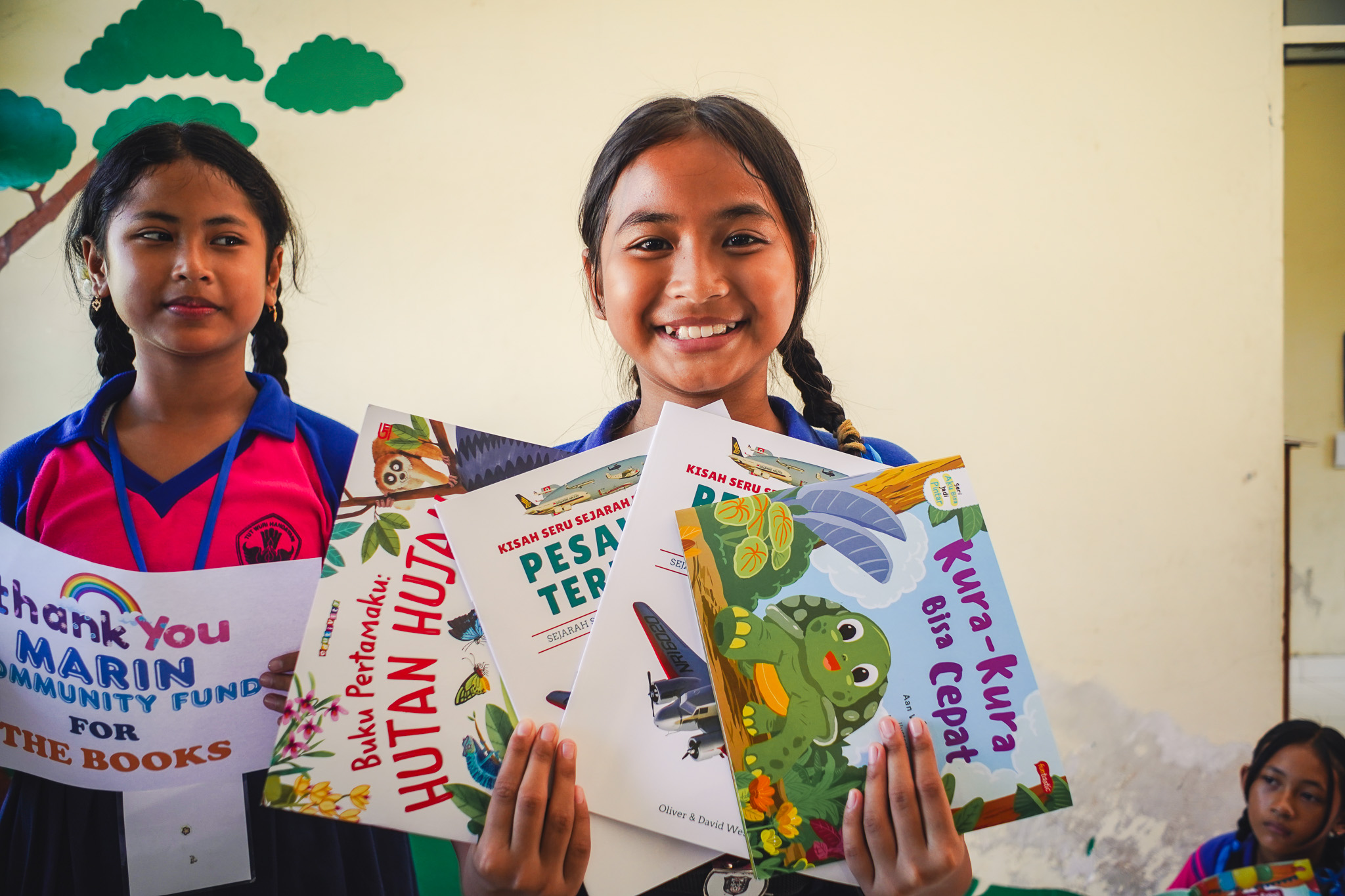29th December 2017.
As we come to the end of 2017, we also mark the end of our annual sexual health education program. In 2017, the workshops reached more teenagers than ever…
 Successful Year of Workshops
Successful Year of Workshops
2017 was another successful year of sex education in Bali. It marked a key stage in development of the program, with a new focus on giving schools what they need to self educate.
Visiting 45 schools across each of Bali’s 9 regencies, our team was able to deliver our trademark workshops as well as much more.
 Reaching over 10,800 students this year, the project has had a much wider impact in helping schools with their own capacity building.
Reaching over 10,800 students this year, the project has had a much wider impact in helping schools with their own capacity building.
Being Effective
New booklets and materials have increased effectiveness, helping to give students the knowledge that may one day save their life.
Making informed choices when it comes to sexual activity is critical for teenagers. Their  choices now affect their future lives.
choices now affect their future lives.
The workshops go through a series of mini sessions, aimed at educating surrounding issues of drugs, disease and reproduction. A special focus is on HIV and AIDS, which in Bali has reached high levels.
There’s fun and games, talks, activities and even condom simulations in the highly engaging workshops.
 HIV and AIDS in Bali
HIV and AIDS in Bali
While official figures seem to vary a little in terms of numbers, by all accounts the issue is getting worse. There are two sets of figures – one from the national government and one from the Bali/local government.
In the Indonesian Government’s latest study of the status of HIV/AIDS, the total number of confirmed HIV/AIDS in Bali as of March 2016 is 18,673 [1] (see above graph). It can be  assumed that there are many more cases that have not been tested or diagnosed.
assumed that there are many more cases that have not been tested or diagnosed.
A conflicting report comes from the Deputy Governor of Bali I Ketut Suderkerta who announced in April 2016 cases of HIV/AIDS were at 13,774[2]. One explanation is that the Indonesian Government study includes all cases, including deceased individuals.
The latest Bali Government figures show something very worrying. From April 2016 to  April to 2017, cases of HIV/AIDS rose from 13,774 to 17,099 – a 24.1% rise in just one year[3]. The need for preventative measures has never been so important.
April to 2017, cases of HIV/AIDS rose from 13,774 to 17,099 – a 24.1% rise in just one year[3]. The need for preventative measures has never been so important.
School ‘HIV Club’ Development
Part of the response to help curb growing numbers of HIV and AIDS across Indonesia is to create mandatory HIV/AIDS awareness groups in every high school.
 Every school is now obliged to have a KSPAN (Kelompok SiswaPeduli Aids dan Narkoba) ‘club’, consisting of students who have opted to join the club as their ‘extra curricular’ study choice. Other choices, such as chess clubs, English clubs and others are available.
Every school is now obliged to have a KSPAN (Kelompok SiswaPeduli Aids dan Narkoba) ‘club’, consisting of students who have opted to join the club as their ‘extra curricular’ study choice. Other choices, such as chess clubs, English clubs and others are available.
These clubs are full of eager students ready to help, but they often lack the support or knowledge to help educate their fellow students. With each school having around 1,000 students, KSPAN groups represent a  huge opportunity to truly provide sustainable education.
huge opportunity to truly provide sustainable education.
Working with over 40 KSPAN groups, Bali Children’s Project has helped to develop activity plans, ideas and mentorship. With a competition to award clubs that take part, there have been some great responses.
We’ve seen KSPAN groups that were previously almost non-existent inspired and active.
 Results
Results
One of the key elements of the workshops are the pre and post tests that students are asked to complete. Each test is exactly the same, with the only difference being one is before and one is after the session.
Across all schools, total average pre tests scored 50% correct answers, with post tests averaging 86%. While this varied depending on regency, the knowledge level increased fairly  consistently, with schools increasing in correct answers by 29% – 44% (an average increase of 36%).
consistently, with schools increasing in correct answers by 29% – 44% (an average increase of 36%).
The added benefits from KSPAN groups should also help to further disseminate information regarding sexual health.
Future of the Project
The 2017 project was only made successful thanks to a grant from the Mel Wolf  Foundation, as well as grants from Three Monkeys Cafes and Friends of Canggu Community School.
Foundation, as well as grants from Three Monkeys Cafes and Friends of Canggu Community School.
However, in order to sustain a future for the program, we will need sustainable funding and new donors. If you are able to help support this program, please get in touch.
[1] Laporan Situasi Perkembangan HIV & AIDS Di Indonesia Jan-Maret, Dr Mohamed Subuh, Direktur Jenderal P2P March 2016.
[2] Meningkat Drastis, Pengidap HIV/AIDS Mencapai 13,774 jiwa, Okezone News, 17th April 2017 (http://news.okezone.com/read/2016/04/17/340/1364974/meningkat-drastis-pengidap-hiv-aids-di-bali-mencapai-13-774-jiwa)
[3] Pengidap HIV/AIDS di Bali Tembus 17.090 Penderita, Denpasar Tertinggi, Java Post, 30th August 2017, (https://www.jawapos.com/radarbali/read/2017/08/30/10616/pengidap-hivaids-di-bali-tembus-17090-penderita-denpasar-tertinggi)





